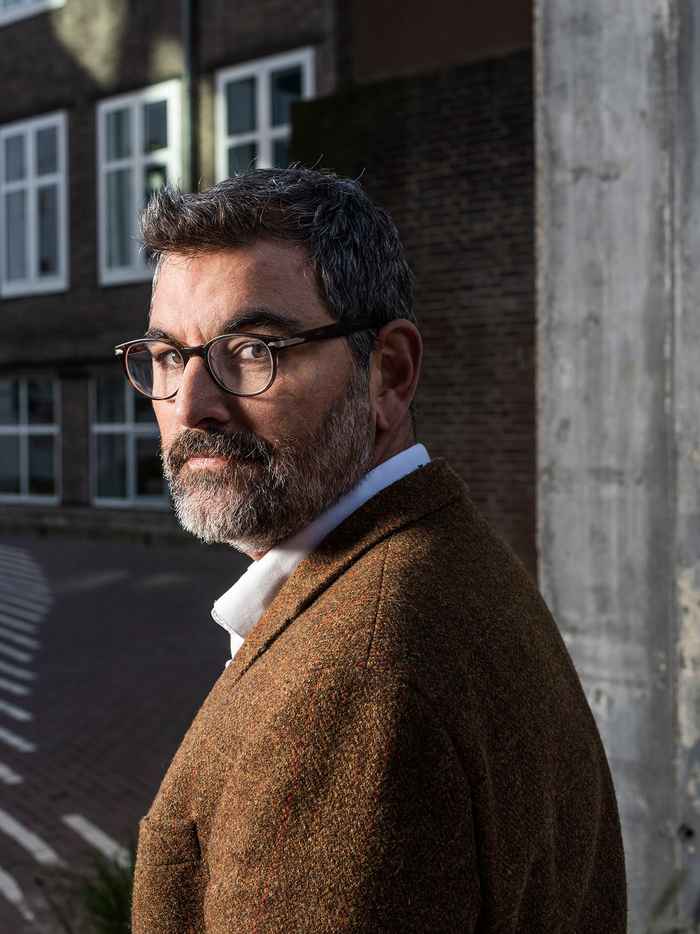Bowen Paulle

Who: Bowen Paulle (1970)
Studied: American Studies and Sociology; took his doctorate in sociology in the Netherlands
First job: Selling clothing at a market in NYC
Favourite spot at the UvA: Café de Brug on the Roeterseiland Campus, because of the light
Essential: ‘Teams, teams, teams.’ A network lets you achieve more than you ever could alone.
Bowen grew up in New York during the 1980s crack epidemic. Everything he experienced and observed there instilled in him an enduring obsession with inequality. Filled with pragmatic questions in need of answers, he chose programmes in American Studies and Sociology. He then went on to earn a PhD in Sociology, and conducted research into topics including educational programmes for underprivileged children.
Did you ever want to study anything else?
‘No, never. My childhood motivated me to get a sociology degree, yes. I grew up in New York City in the Eighties, on the Upper West Side, in a middle-class family. I played basketball, and in America you don't play with a club, but through your school. I was the only white guy on the basketball team and the only middle-class kid in the whole school. That kind of outsider experience makes you look at the world in a different way. I remember it like it was yesterday: taking the subway home after a night out and coming across one addict after another, homeless people, sometimes stoned or aggressive, sometimes obviously on heroin. That was in the neighbourhood I lived in. When I went to visit friends in the poor neighbourhoods, it was even worse... indescribable, really. Having seen and experienced all that, it doesn't exactly prep you for Wall Street. Instead, you become a sociologist to try and learn what you can do about it.’
I'm obsessed with inequality and the question of what we can do to combat it.
What would you like to change?
‘Well, let me give you an example. All children make mistakes, that's normal. But some of them have resources that help them stay on the right track. I had a safety net like that myself when I was young, but many of my classmates didn't. They ended up in jail, or got shot, even though they were every bit as intelligent as I was. So my question is, what can the educational system do to help those at-risk young people? One way to find solutions is through experimentation. By combining Randomised Control Trials with ethnographic field research. I don't believe in keeping theory and practice separate from one another: you have to apply theory to real-world practice and vice-versa. Why does one thing work and where did that other thing go wrong? Why does something work in one place or context and not in another? Together with a team of quantitative researchers, I experiment with concrete solutions for concrete situations. Theories must have a real-world basis and must contribute to finding answers to societal issues.’
You can find solutions through experimentation.
So what approach did you end up taking? And was your contribution a success?
‘My thesis was about the lower layers of society and secondary education in Amsterdam and New York City. Despite all the major differences between the countries, the poorest groups in these two cities have a lot in common: intergenerational poverty and the lack of a safety net to help children. Together with the UvA, we've developed SEPP: the Scalable Education Programs Partnership. This partnership is intended to explore interventions that could potentially lead to a breakthrough, using methods including educational programs for underprivileged pupils. We experimented with “high-dosage tutoring” as well, in which two kids receive an extra hour of maths help from a tutor each day. Many preparatory secondary vocational education (VMBO) pupils fail to attain the 1F level – the scholastic level they should have been at when they finished elementary school. VMBO pupils who took part in the tutoring programme for five months, on the other hand, were shown to have made up for 71% of their deficit relative to the 1F level in that time. Pupils in the control group, who did not receive tutoring, reduced their deficit by only 17% on average. And these aren't just vague, subjective results: they're empirically substantiated facts. We can build on these results as we continue to search for a breakthrough to benefit vulnerable children, families, schools and neighbourhoods.’
Are you getting enough support from the UvA?
‘The UvA has an amazing network that includes aldermen, alumni, and the Amsterdam University Fund. Once you're on their radar and doing work that they want to encourage, the UvA can offer you a lot of assistance and new contacts. The UvA has a well-established reputation within the scientific community, too; we have some real big-shots here on campus. That helps when you're trying to establish connections with other research teams. I've visited the Netherlands regularly since I was a kid, and I studied at the UvA in the third year of my programme. When I was offered a position as a research assistant here, I knew I'd end up staying. I have also built up a network here. For what it's worth, the Netherlands is a thousand times more civilised than the US, with much less violence. There are major problems here, too, but they're not even close to those facing the United States. Here in the Netherlands is where I feel at home.'